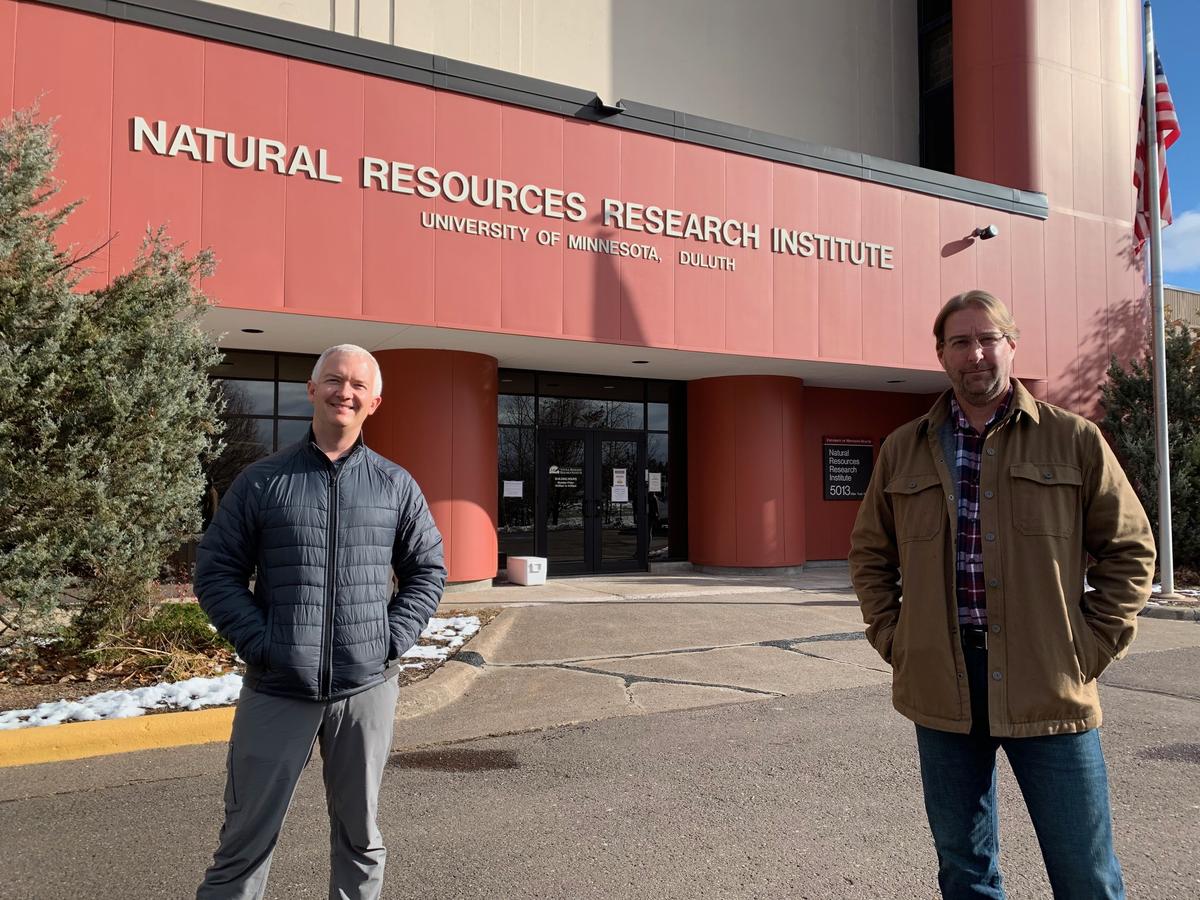Tim Hagen knows agglomeration. He knows how to take fine materials and make them into useful and transportable products. As a Senior Research Engineer at NRRI, Hagen is in his element developing novel and innovative ideas for businesses of all sizes.
What he’s not is an expert in business development – the focus on developing customer relationships, understanding their needs, while seeking new opportunities and protecting potential innovations. As an applied research organization within the University of Minnesota, NRRI has taken on an “industry approach” to business development, which gives researchers more time to do what they do best.
“NRRI has to be as nimble as our business and industry partners,” explained Rolf Weberg, NRRI executive director. “Business Development, done right, requires specific skillsets and considerable time. Asking our talented scientists and engineers to also build and manage client relationships and opportunities isn’t a good use of their time.”
Team Approach
Weberg has assigned business development responsibilities to Tim White and Kevin Kangas. Both came to NRRI in the last few years with extensive industry experience. White has nearly 20 years of experience in new product development focused on aerospace, mining, and consumer durables. Kangas has 26 years of industry and professional consulting experience mainly in the forest products, iron ore and steel industries.
When companies or entrepreneurs come to NRRI for assistance, it’s often their first time working with a University entity. White and Kangas walk customers through complex topics like intellectual property, confidentiality and licensing up front.
“In the university system, it often takes longer to get things done than what industry is used to,” said Hagen. “But now they can see that we have a team to build a program that meets their needs.”
Hagen relies on White’s expertise to identify intellectual property opportunities at the beginning of client discussions. White lays out the customer’s role, what NRRI can offer and how they’ll protect the innovations with non-disclosure agreements. University paperwork can get unwieldy, so White manages the paper trail, making sure all i’s are dotted and t’s are crossed.
NRRI Metallurgical Engineer Brett Spigarelli has a client with a lot of ideas to explore. He uses the White/Kangas team to figure out whether a straight-forward service contract is in order or a sponsored project submitted through the U’s Office of the Vice President for Research.
“For example, we’re working with a grid energy storage company that needed us to characterize an iron bearing feed material for their innovative process,” said Spigarelli. “The work is more developmental, exploratory, bouncing ideas off the client. So for that, we need to work through the U’s Sponsored Project Administration.”
Spigarelli appreciates that White and Kangas work with the client upfront to describe the SPA contracting options and process to determine the best approach. Putting the client first sets the stage for a productive and efficient working relationship.
The Right Relationships, the Right Equipment
Managing client touchpoints and keeping communication lines open can be tricky. White and Kangas are currently tracking 99 opportunities – a number that grows by the day – using the Zoho Customer Relationship Management tool. This program allows teams to collaborate on all new business opportunities while communicating efficiently, following-up with customers in a timely manner, and ultimately securing more business.
With an entrepreneurial focus, the Business Development duo manages a Business Assistance Fund that provides funding assistance for small business access to NRRI’s expertise and equipment. NRRI is also a commercialization partner in the collaborative Enterprise for Strategic Resources, working closely with the Minnesota Department of Iron Range Resources & Rehabilitation (DIRRR). The goal is to help commercialize “shovel-ready” technologies that benefit DIRRR’s service territory.
Ensuring the right equipment and capacity to get the job done for clients is also an important role for the Business Development team. Using his industry experience, Kangas finds and selects reputable suppliers that provide high quality goods and services at a fair price. Taking that off the plate of busy researchers is also an important role for the Business Development team.
Meeting Business Needs
“NRRI takes its role in economic development seriously, striving to provide applied research at the speed of business,” Weberg added. “It’s a unique role within the university system which is why we operate in more of an industry framework. Our goal is to meet the business world where they are.”
